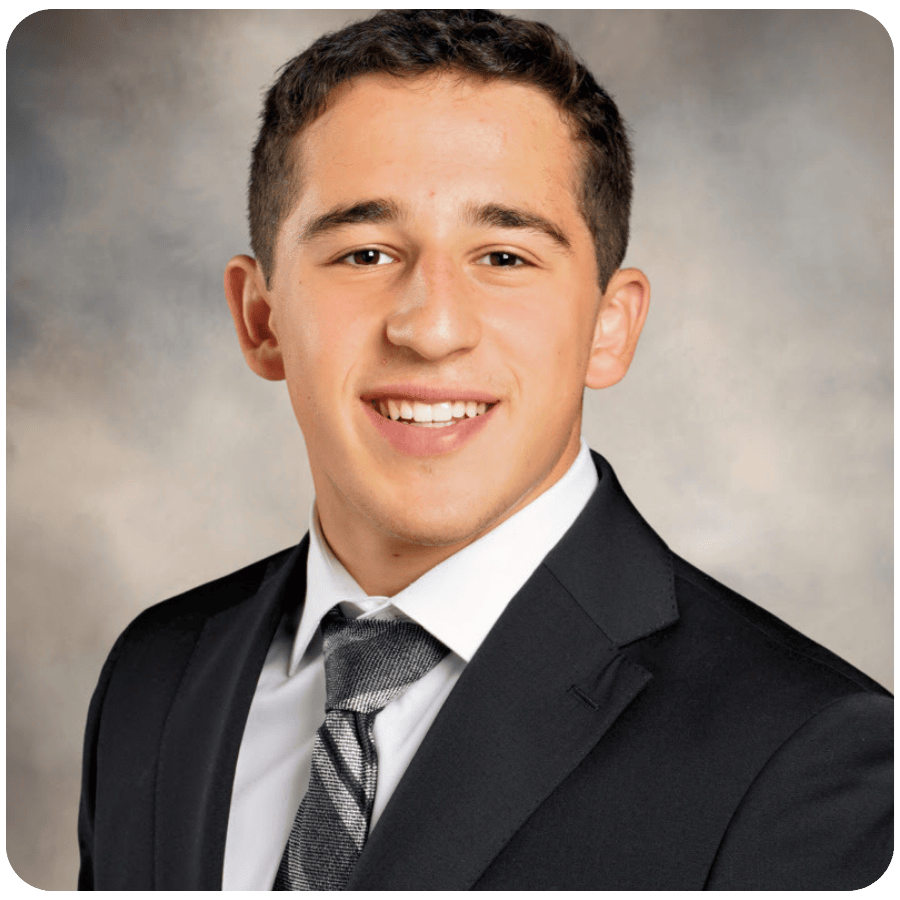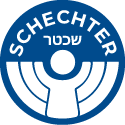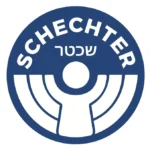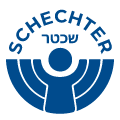Schechter Graduate Reflects on Service and Identity in Inspiring D’var Torah
Ari Schwab (’22) recently delivered a powerful and heartfelt d’var Torah at Rochelle Zell Jewish High School (RZJHS), where he reflected on the meaning of service through the lens of his Jewish identity and shared his commitment to joining the United States Military Academy at West Point.
Despite being a proud Zionist, Ari chose to serve in the U.S. military to honor his family’s legacy, protect the freedoms he cherishes, and bring Jewish values into his leadership. Through experiences like attending West Point’s Summer Leaders Experience, Ari found a sense of belonging, a responsibility to uplift the Jewish community within the academy, and a deeper understanding of how faith and service intertwine.
Kol hakavod, Ari! Read his full D’var below!

What does service mean to you? Perhaps, for you, the meaning of service is volunteering at a shelter or food pantry or caring for a sick or elderly family member. Maybe in your view service is teaching others, guiding them to grow and succeed. Or, service might even take the form of advocating for causes you care about or stepping up in times of need. Pirkei Avot, Ethics of the Ancestors, teaches that Avodah—service—is one of the three pillars upon which Judaism stands.
Many commentators interpret this as service to God, often through sacrifice and now prayer. In fact, this morning’s Parsha, Vayikra, details the various offerings brought before God, reinforcing the idea that each person is called to give back—to serve. For me, at this moment, that call to service is my commitment to the United States Military Academy at West Point—service to my country.
Though many of you know of my choice to apply, I wanted to take this opportunity to share why. As I progressed through the steps of my application, I have been pondering the nature of the service I would embody as a leader in the U.S Army. My questions have only been compounded and sharpened by my Judaism, Zionism, and interactions with my community members.
Most frequently, as I have navigated my application to West Point, I have been confronted with the following question from many people: Why not the Israeli Army? After all, I am a religious Jew and a proud Zionist and thus Israel is central to my identity and her safety is valuable to me. But as much as I am a Jew, I am also an American. So while it’s natural for people to ask why I haven’t chosen to serve in Israel, the answer actually lies in understanding the meaning of my American identity.
The United States is where I was born and raised, is where I was taught my values, and is where I call home. As much as I love Israel, I am not fully “me” without America. So before I can answer why I chose this path of service, I must first reframe the question: Why America?
Unlike many other Jewish families, my family has had the privilege of living in the U.S for over a hundred twenty years. Throughout that time, I have had many relatives who have served in the U.S Armed Forces including my grandfather and three great grandfathers before him as well as numerous cousins, including one cousin who is currently serving as a LT. Colonel in the Air Force. To attend a United States military academy and become an officer would be a powerful way for me to honor their legacy and take part in my family’s tradition of sacrifice for our country. More personally, living in America all of my life and enjoying the rights, privileges, freedoms, and protections that American citizens receive, has been a true blessing. For example, our ability to safely and proudly practice Judaism in America is not a privilege that is ensured in every country. While some will criticize America’s response to the war in Israel or denounce America as unsafe for Jews, I am personally glad to live in a country where being Jewish does not make me a second class citizen and the right to practice our religion is protected by our constitution. For me, it is not enough to simply benefit from the freedoms and opportunities this country provides while relying on others to protect them. I too have an obligation to contribute, to earn, and to help safeguard the freedoms so many take for granted, and to ensure they endure for future generations.
Further, one experience that solidified my decision came at the end of last school year, when I attended West Point’s Summer Leaders Experience. While walking through the hallways I was astonished to see multiple Israeli flags lining the walls. As someone who has lived in a predominantly Jewish community and attended Jewish private school my whole life, it was touching to see such a display of support for my people in a secular setting. Not only that, but for the first time in my life, I was immersed in a community in which I was the only identifiable Jew. At first, being without the comfort of a community that inherently understood my faith felt alienating, but as I spent more time at West Point, that feeling was slowly replaced by a sense of belonging within its strong and supportive community. As I wore my Kippah throughout my visit and kept Kosher to the best of my ability, I was frequently and politely questioned about Judaism by many of my friends. Although unaccustomed to receiving such questions so frequently, I welcomed their inquiries and even grew to enjoy them. It felt refreshing to be the first Jew that some of my peers had ever met and I appreciated the opportunity to share my knowledge and to represent my tradition and heritage.
Moreover, during my stay, I was given the opportunity to visit the on-campus synagogue with the fourteen other Jewish “Cadet Candidates” or CCs. As our visit progressed, I realized that not only would the Jewish community be smaller than what I was used to, but it would also reflect a different level of observance and knowledge compared to home. Then, as I led Mincha and heard some of the CCs who could become my future classmates struggle to engage in the prayer, yet try their hardest to participate, I realized how impactful my leadership could be in this community. I have been blessed with 14 years of strong Jewish education and I can see no better application than of having a part in building the Jewish character of future leaders in the U.S Army. Helping to teach and inspire other Jewish Cadets to be proud, knowledgeable Jews, capable of becoming Jewish leaders in their own right wherever their Army careers take them, would be a blessing that West Point uniquely offers.
My Jewish values are not separate from my desire to serve—they are the foundation of it. Judaism teaches a deep commitment to justice and peace, principles that guide my understanding of military service. The Torah commands us to pursue tzedek (justice) and shalom (peace), recognizing that peace is not simply the absence of conflict but the presence of security and righteousness. As Rabbi Toba Spitzer highlights in her article “Seek Peace and Pursue It,” the prophet Isaiah envisions an ideal future where nations “beat their swords into plowshares,” yet Jewish tradition also acknowledges that until that day comes, there are moments when taking up arms is necessary to protect the innocent and uphold justice. Mishnah Sanhedrin teaches that “whoever saves one life, it is as if they have saved an entire world,” reinforcing the sacred duty of protection. As Rabbi Spitzer notes, the value of pikuach nefesh—preserving life—often overrides other commandments, underscoring the moral responsibility to defend those in danger. The role of the soldier, in this framework, is not one of aggression but of protection. In this way, my service is an extension of my Jewish identity—an act of responsibility to safeguard the freedoms and values that allow my people, and all people, to live in security. At West Point and beyond, I hope to embody these values, bringing the ethics of my faith into my leadership and service.
Recently, however, I went through a period of doubt. Is 12 years of service too much? Will I be able to handle being cut off from a vibrant Jewish community for that long? What will happen to my relationships at home that I cherish so much when I am leading a lifestyle so differently from theirs? How can I balance my identity, my values, and my goals with the restrictive and demanding structure of West Point and the Army? While I still don’t yet know how to reconcile all of these questions or what exactly my future holds, I have found comfort in reflection. I feel very fortunate to have grown up in this community. RZ has instilled in me the values of hard work, responsibility, and the power of a strong, supportive community. My summers at Ramah taught me the value of deep relationships, spirituality, and brotherhood. The relationships that I’ve formed at both RZ and Ramah will without a doubt be bonds that I cherish forever and though I’ve struggled staying in touch in the past, I am determined to make a more conscious effort to maintain these connections because the people here who have shaped me are far too valuable to let slip away. My parents, through their own actions and guidance, have shown me the importance of persevering outside of my comfort zone—of embracing difficulty with thought, dedication, and purpose, even when the path is uncertain. These experiences have not only shaped who I am but have also instilled within me the discipline, resilience, and determination that will drive my success. No matter what challenges lie ahead, I feel ready, knowing that the hard work I have and will put in and the foundation I have built with the help of this community will carry me forward.
So, what does service mean to me? To me, service is honoring a multi-generational tradition. Service is doing my part to earn the privileges that I have unconditionally received and protect those rights for others. Service is stepping out of my comfort zone and immersing myself in a new community, even when it means sacrificing the comforts I’m used to. It’s staying true to my faith in a place where some might consider observance impossible. Service is utilizing my unique knowledge and experience to uplift and enrich my community.
Most of all, service means having the strength to embrace both truths at once: I am Jewish, and I am American.









